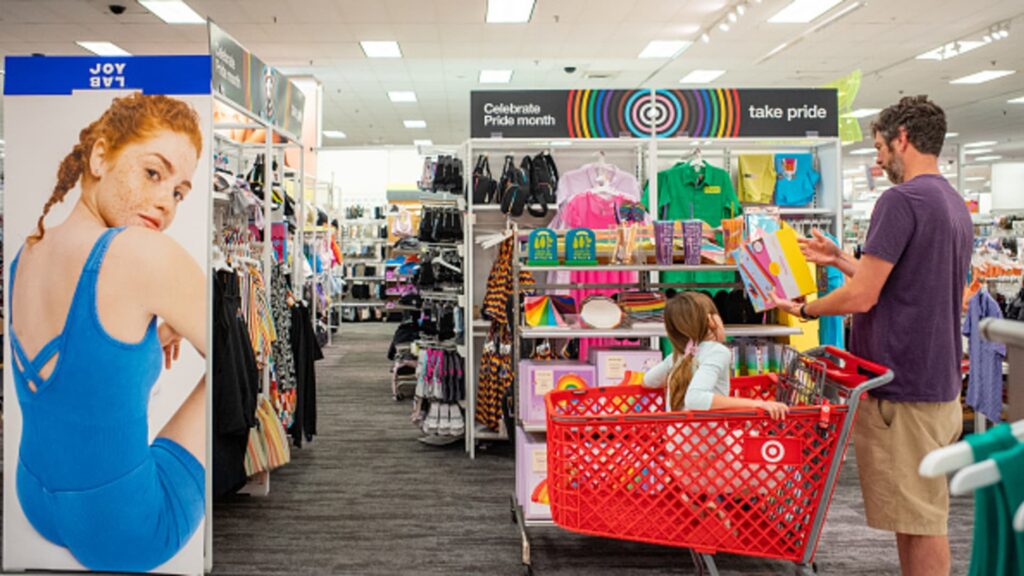Retailer Target is under pressure on multiple fronts: it’s facing pushback after rolling back its diversity, equity and inclusion initiatives; it’s fighting off stiffer competition from nimble competitors like Amazon; and the company has higher exposure to a decline in consumer spending amid inflation and tariff volatility than rivals like Walmart and Costco.
Target’s decision to scale back key DEI programs sparked nationwide boycotts and a decline in foot traffic for 11 straight weeks between January 27 and April 13, according to Placer.ai.
Yet the company’s challenges go further than tariffs and politics. Experts say many of its issues are self-inflicted. Excess inventory, a shortfall of staff and locked up inventory have all contributed to flat revenue and a tumbling share price.
“Target has had several missteps since the peak of Covid where their inventory position was too high,” said Joe Feldman, senior managing director at Telsey Advisory Group. “They had to discount heavily to clear through a lot of the inventory. Things were starting to get back on track. Then they get hit with DEI,” he said, referring to the boycotts.
While Target’s customers have been spending relatively the same amount per quarter in 2025 as they were in 2021, they’ve increased their purchases at competitors Walmart and Costco, according to data from Indagari.
Neil Saunders, managing director at GlobalData, said operational decisions like locking up products, a lack of new and fresh partnerships with brands and designers, and staff shortages have led Target to cede market share. Between 2021 and 2024, Target lost 0.18% of market share, while Amazon, Costco and Walmart gained 0.07%, 0.15% and 0.75% respectively, according to GlobalData.
“There’s still a lot of affection for Target,” Saunders said. “But consumers are definitely spreading their spending around more thinly. They’re definitely diverting some of that spending from Target to other retailers.”
Target declined CNBC Digital’s request for an interview but said in a statement that the company “entered 2024 with a commitment to stay nimble and generate profitable growth,” but that “those results came with an unexpectedly high level of variability throughout the year.” It added, “by controlling what we can control, listening closely to consumers and staying focused on what differentiates Target, we are confident we can continue to create value for our stakeholders,”
Watch this video to learn more.


